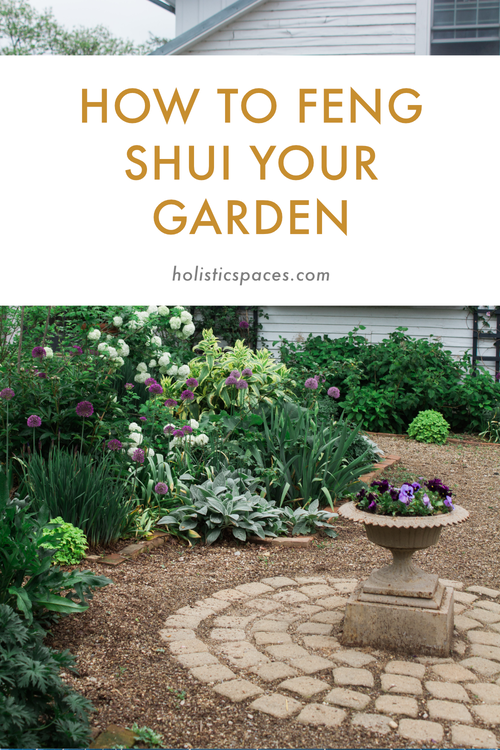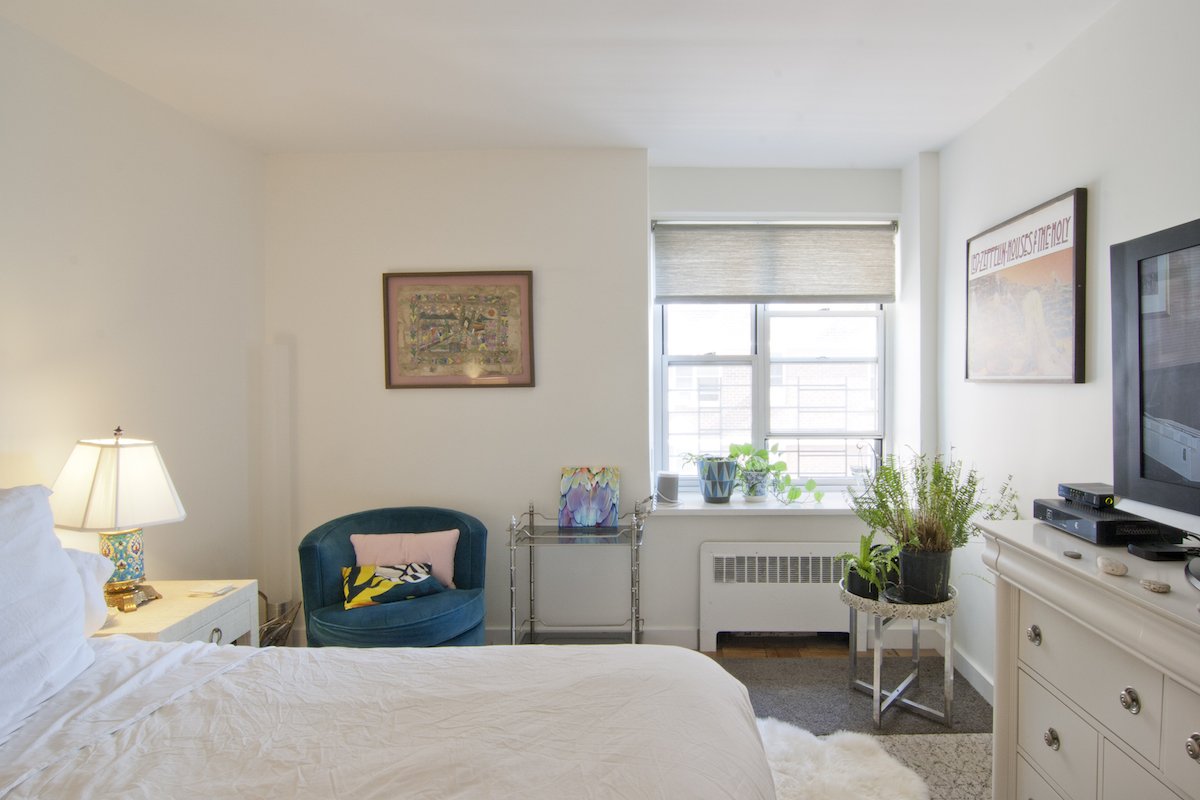There are a lot of feng shui misconceptions out there, and I wanted to address a few of them in this post. While the things I’m sharing here aren’t problems from the BTB feng shui perspective that I practice and teach, I want you to first consider your own feelings. If you are very concerned about something, always go with your intuition. If you’re very fearful about an object in your home, it’s not going to be a source of good energy.
Plants in the bedroom are bad feng shui
One common feng shui misconception is that you shouldn’t have plants in the bedroom. My teachers taught that plants are fine in the bedroom. I have plants in my bedroom, and my business partner Laura at the Mindful Design School does as well.
Some feng shui consultants do recommend avoiding plants in the bedroom, and this doesn’t mean they are wrong. Their teachers probably taught them that plants in the bedroom are not ideal. There are many schools of feng shui, and while their foundations are all similar, each school has different takes on certain things. If you’ve read a lot about feng shui from different sources, you may have read some conflicting information, and that’s okay. Just think about how many chocolate chip cookie recipes there are in the world; there isn’t one that is the best, unless it is the best for your needs and your taste.
The idea that plants shouldn’t be in the bedroom comes from the fact that plants and wood energy are more active, and the bedroom is more of a restful space. If you do have trouble sleeping, and you’ve already tried all the logical things and you’ve done all the bedroom feng shui adjustments, you can try taking the plants out of your bedroom to see if that feels better.
Again, from a Black Sect or BTB perspective, which is what I teach, it’s totally fine to have plants in the bedroom. That said, if you want to try removing the plants from your bedroom to see how it feels, go for it. I would encourage you to test things out and trust your own intuition.
Mirrors in the Bedroom are bad feng shui
Another common misconception is that it’s not good feng shui to have mirrors in the bedroom. Mirrors are something we use a lot in BTB feng shui because they have the ability to magnify and amplify energy. As with plants, if you feel uncomfortable with a mirror in your bedroom, then you should acknowledge and honor your own perspective. However, from the BTB perspective, mirrors in the bedroom are not a problem.
If you have a second-hand mirror that has a lot of predecessor qi, or if you don’t know where the mirror came from and what energy may be connected to it, that’s a whole different story. With anything you bring into your home, it may have picked up energies from its previous owner or on its way to you. If you do have a second-hand mirror in your bedroom, it is a good idea to clear it.
The mirror itself, however, is not a problem according to the BTB school of feng shui. Again, if you don’t feel comfortable having a mirror in your bedroom, honor that. You have to pay attention to your own personal connections to how your bedroom is set up and how it makes you feel.
Feng shui is about fixing things
The last feng shui misconception I want to address is that feng shui is about fixing things. While a lot of feng shui is remedial, I like to look at it from a different perspective. Instead of looking at feng shui as a way to fix problems, I like to ask my clients what wishes they would like fulfilled. This way, we are using feng shui with the intention of creating the life you want and manifesting your dreams.
Since I’ve started practicing feng shui, almost all the aspirations I’ve written down have come true. Feng shui can be a tool that allows you to see what is already present in your life and be in greater harmony with your space and with the people around you. Then, you can be grateful for what you have, and think about what wishes you have for your life.
by Anjie Cho





